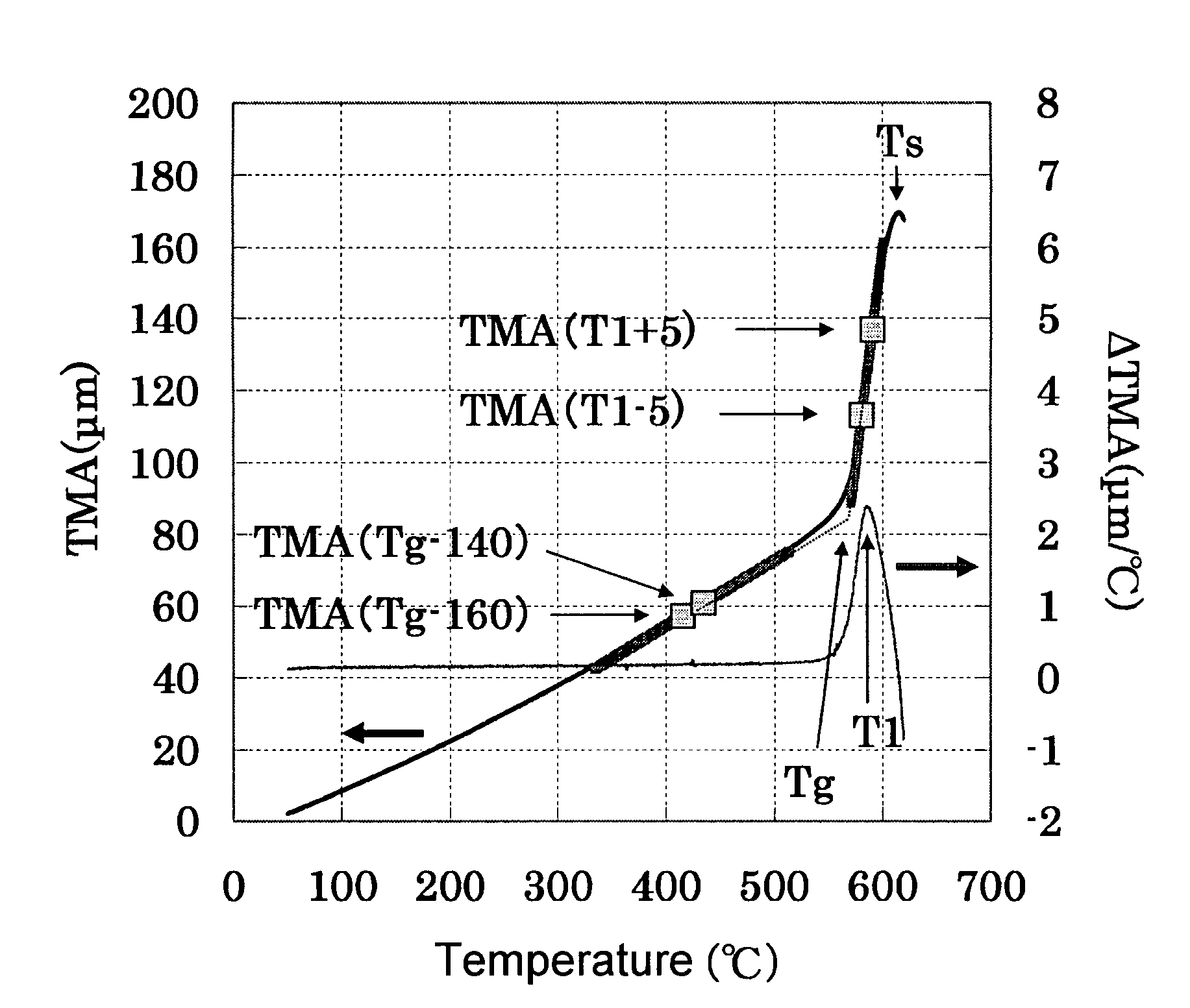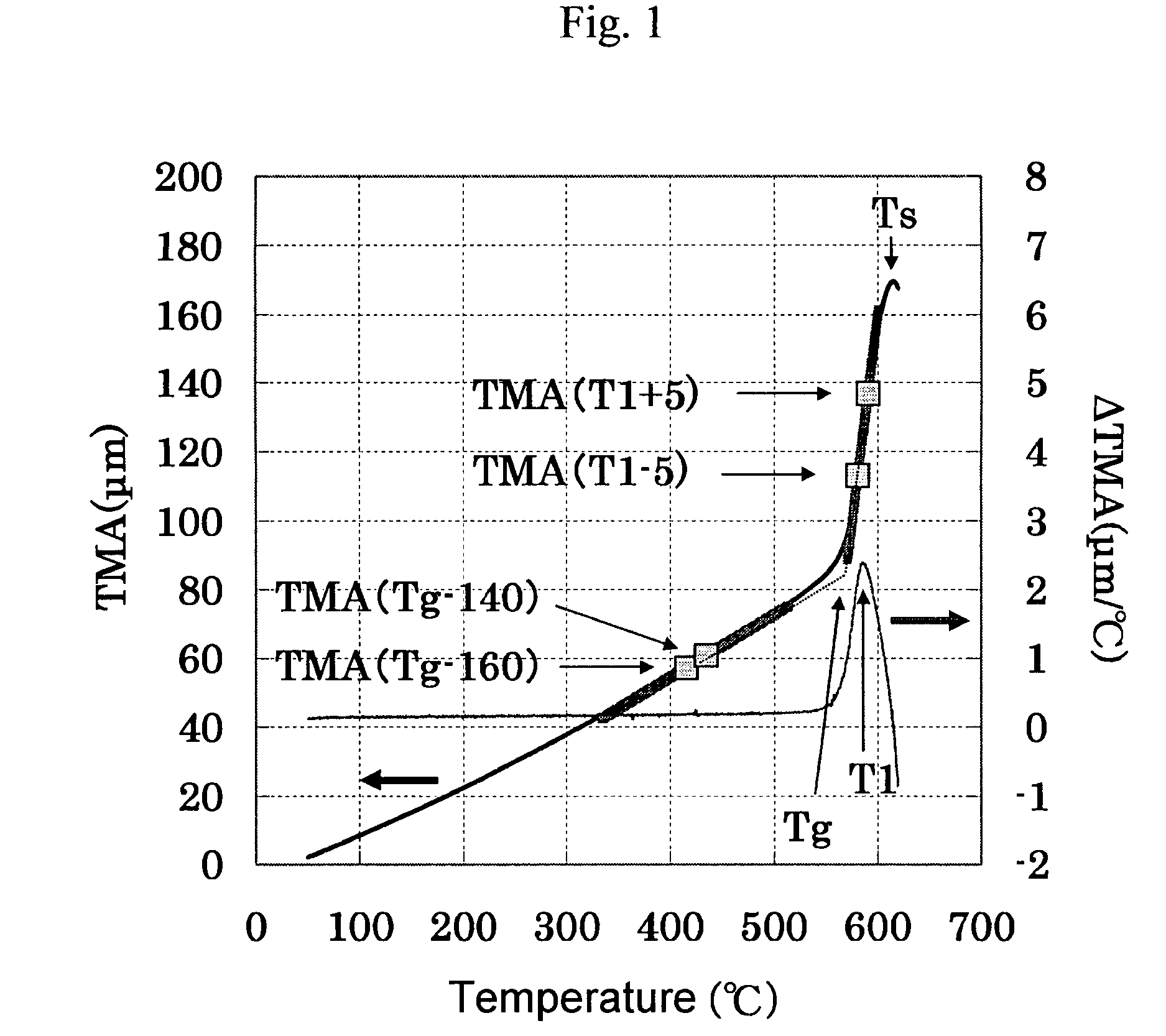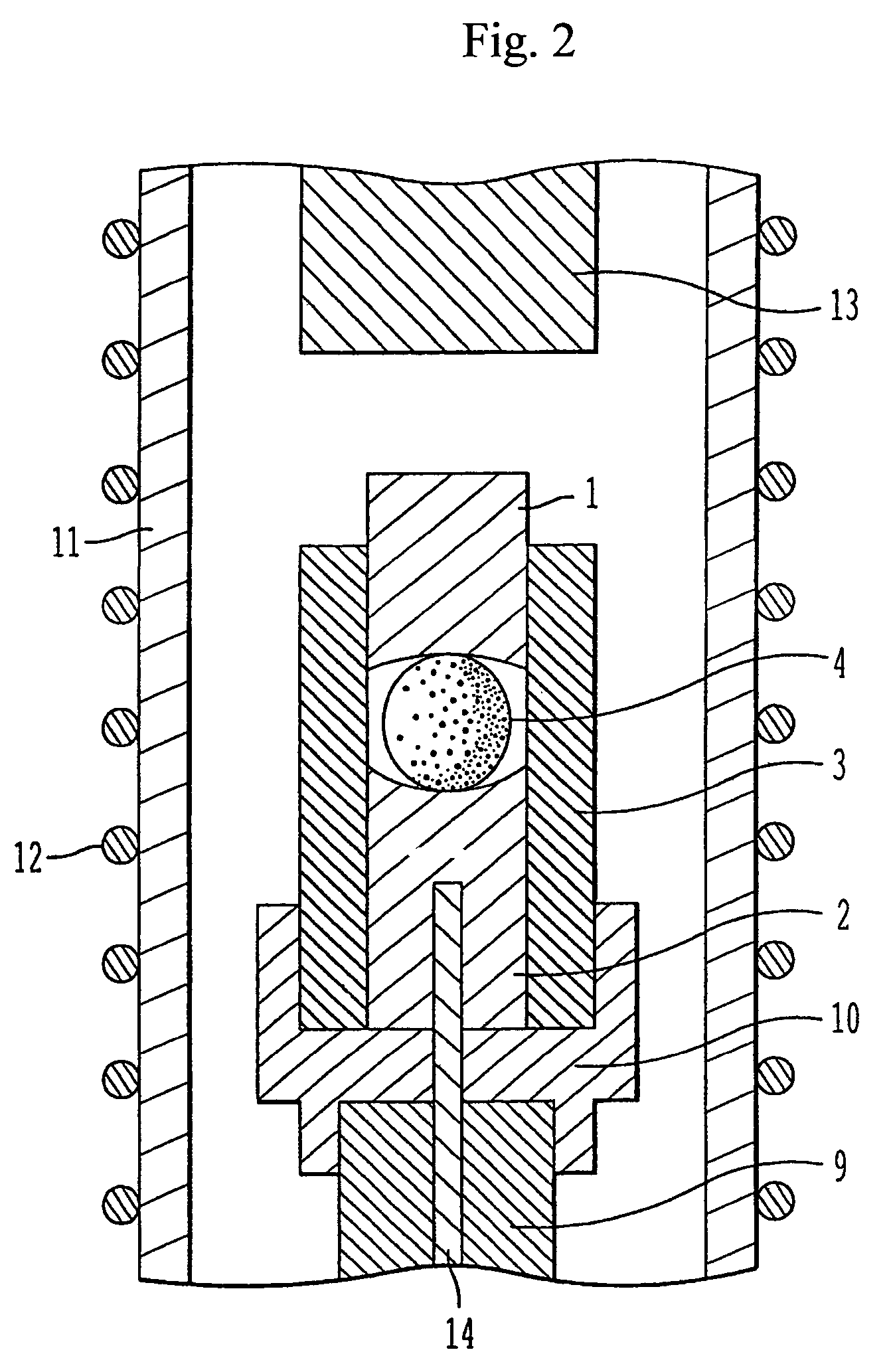Optical glass, preform for precision press molding and method of manufacturing thereof, optical element and method of manufacturing thereof
a technology of optical elements and optical glass, applied in the field of optical glass, can solve the problems of compromising productivity, causing crizzles and cracks, and sometimes affecting the cooling effect of the pressing mold,
- Summary
- Abstract
- Description
- Claims
- Application Information
AI Technical Summary
Benefits of technology
Problems solved by technology
Method used
Image
Examples
examples
[0100]The present invention will be further described below through examples. However, the present invention is not limited to the forms shown in the examples.
Manufacturing Optical Glass
[0101]Table 1 gives the glass compositions of Examples 1 to 18 and Comparative Examples 1 and 2. Various corresponding oxides, hydroxides, carbonates, and nitrates were employed as the starting materials of the various components for each of these glasses. The starting materials were weighed out so as to yield the compositions indicated in Table 1 following vitrification, thoroughly mixed, charged to a platinum crucible, melted at a temperature range of 1,200 to 1,300° C. in an electric furnace, homogenized by stirring, clarified, and cast in a metal mold that had been preheated to suitable temperature. The cast glass was cooled to the glass transition temperature and then directly introduced into an annealing furnace, where it was gradually cooled to room temperature. Various optical glasses were th...
PUM
| Property | Measurement | Unit |
|---|---|---|
| mole ratio | aaaaa | aaaaa |
| Tg | aaaaa | aaaaa |
| Abbé number | aaaaa | aaaaa |
Abstract
Description
Claims
Application Information
 Login to View More
Login to View More - R&D
- Intellectual Property
- Life Sciences
- Materials
- Tech Scout
- Unparalleled Data Quality
- Higher Quality Content
- 60% Fewer Hallucinations
Browse by: Latest US Patents, China's latest patents, Technical Efficacy Thesaurus, Application Domain, Technology Topic, Popular Technical Reports.
© 2025 PatSnap. All rights reserved.Legal|Privacy policy|Modern Slavery Act Transparency Statement|Sitemap|About US| Contact US: help@patsnap.com



